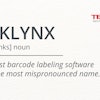
Companies are aggressively investing in AI across supply chains to counter inflation and trade volatility, but a growing execution gap threatens to derail these efforts, according to the second annual State of Supply Chain 2025: Balancing Inflation, Investment & Innovation report from RELEX Solutions.
"Today's supply chain leaders face a dual challenge – they must innovate through technology while adapting to economic pressures," says Dr. Madhav Durbha, GVP of manufacturing industry strategy at RELEX Solutions. "The gap between AI's potential and its practical implementation represents both the greatest risk and opportunity in supply chain transformation today."
Key takeaways:
- While 60% of surveyed companies are prioritizing AI and automation investments, nearly half (44%) can't find the specialized talent needed to implement these technologies. Companies also struggle with budget constraints that limit their ability to scale AI initiatives (43%) as well as poor data quality (39%).
- 31% of retailers are optimizing operations and 31% are adjusting pricing to stay competitive.
- 59% of retailers are growing private label portfolios as consumers seek value.
- 70% of food and beverage manufacturers have increased discounting aggressively, while 40% have introduced value-tier products.
- 60% of companies are fundamentally restructuring their supply chains, with 52% citing demand volatility as their primary challenge and 47% concerned about tariff uncertainty and trade disruptions.
- The report also identifies Generative AI (59%), predictive AI (43%), and cloud-native solutions (34%) as the top technology investment priorities, with most companies allocating between 5-20% of their technology budgets to AI-driven solutions despite market volatility.



















